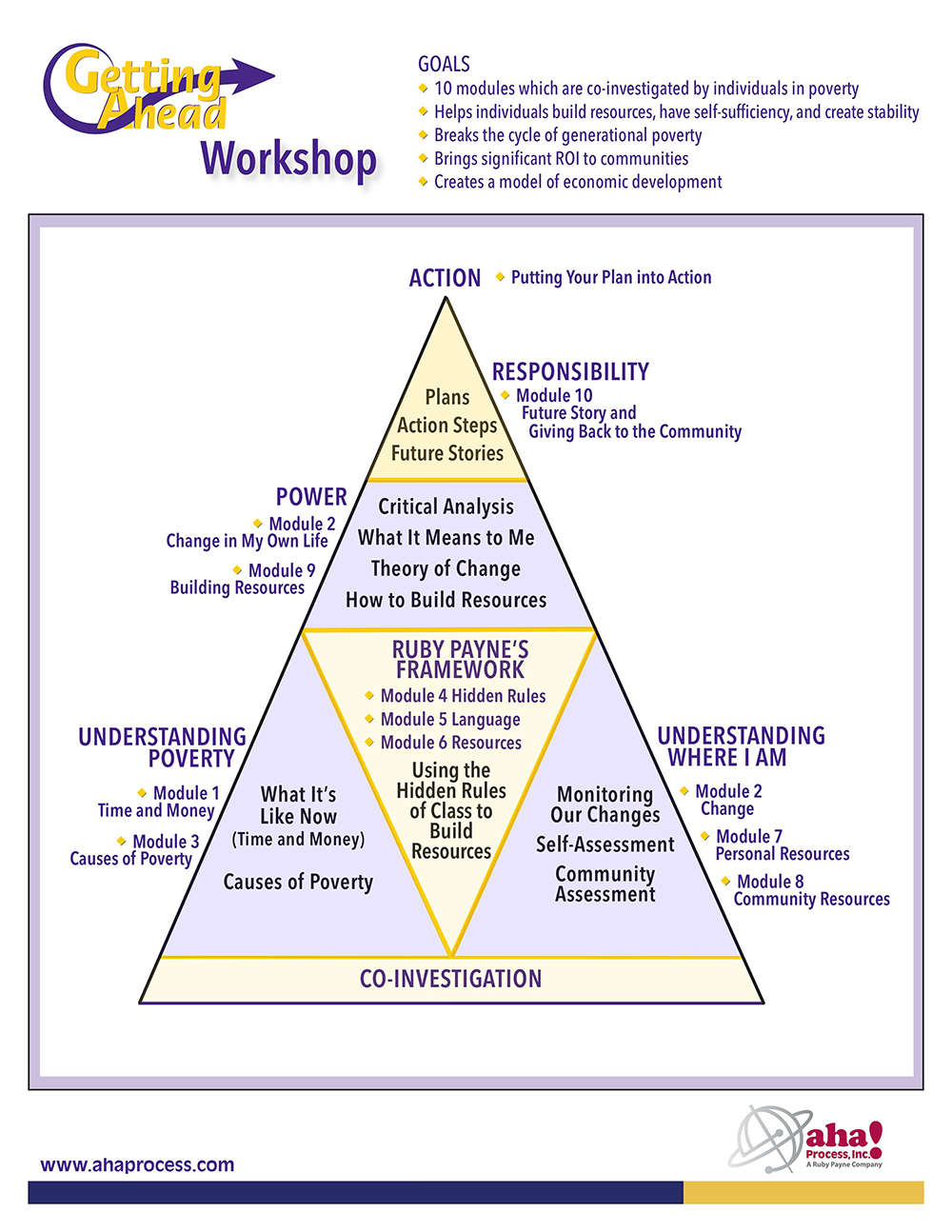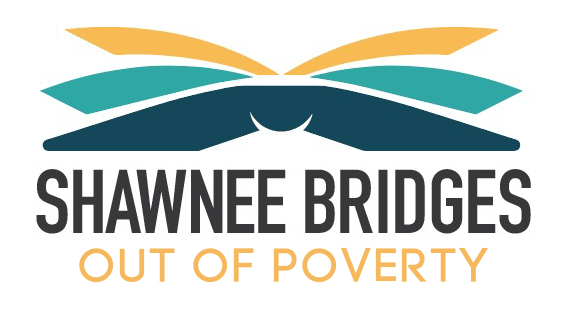OUR PROCESS
What We Do
- We follow the proven "Bridges Out of Poverty" model for taking a community approach to helping people find their way out of poverty.
- We provide "Bridges" training for the community.
- We coordinate and facilitate "Getting Ahead" class meetings for those who lack resources and host a Graduation celebration for Getting Ahead graduates.
- Getting Ahead offers participants the tools to be successful.
How We Do It
We accept applications for our Getting Ahead group from anyone in the community.
Groups meet once a week, and we offer:
- FREE curriculum materials
- FREE childcare
- FREE meal (for participants and children)
- COMPENSATION for investigative participation
Getting Ahead meetings span about FIVE months.
Participants who complete the sessions are eligible to graduate.
Graduates are honored at our annual Getting Ahead Graduation Ceremony and are presented with a certificate of achievement.

Resources Learned
- FINANCIAL: Having enough income to purchase goods and services and to save or invest money. Having an educated understanding of how money works and being financially literate.
- EMOTIONAL: Being able to choose and control emotional responses particularly to negative situations without engaging in self-destructive behavior. This is the "state of mind" that determines the way we think, feel, and behave at any given moment. This is a resource that shows itself through stamina and choice. This is about interpersonal skills like teamwork, teaching others, leadership, negotiation, and working with people from many backgrounds.
- MENTAL/COGNITIVE: Having the mental ability and acquired skills (reading, writing, computing) to deal with daily life. This includes how much education and training individuals have in order to compete in the workplace for well-paying jobs or run their own business.
- LANGUAGE: Having the vocabulary, language ability, and negotiation skills to succeed in the work and/or school environments.
- SOCIAL CAPITAL: Having friends, family, and backup resources available to access in times of need. Sometimes this resource is called "Support Systems."
- PHYSICAL: Having physical health and mobility.
- SPIRITUAL: Believing in divine purpose and guidance and/or having a rich cultural connection that offers support and guidance.
- INTEGRITY/TRUST: Trust is linked to two issues: predictability and safety. Can I know with some certainty that this person will do what he/she says? Can I predict with some accuracy that it will occur nearly every time? The second part of the question is safety: Will I be safe with this person?
- MOTIVATION/PERSISTENCE: Having the energy and drive to prepare for, plan, and complete projects, jobs, and personal changes.
- RELATIONSHIPS/ROLE MODELS: Having frequent access to adults who are appropriate, who are nurturing, and who don't engage in self-destructive behavior.
- KNOWLEDGE OF HIDDEN RULES: Knowing the unspoken cues and habits of poverty, middle class, and wealth.
